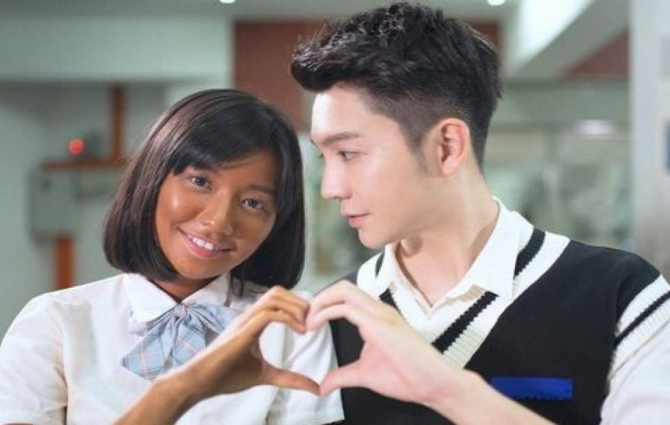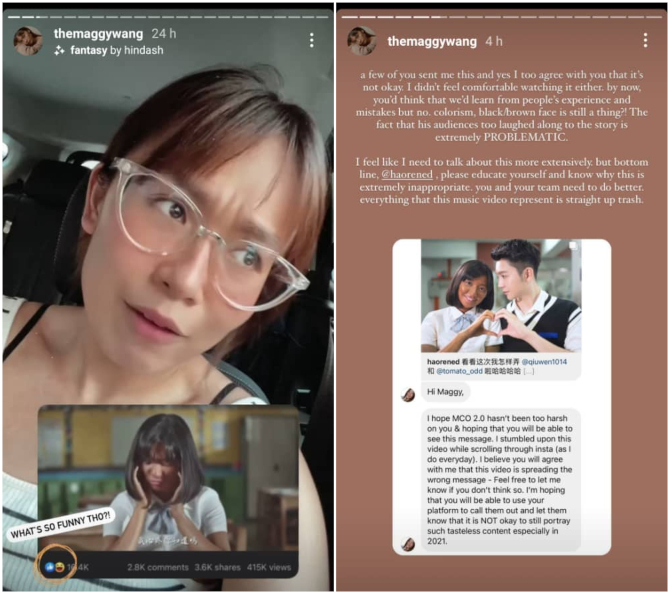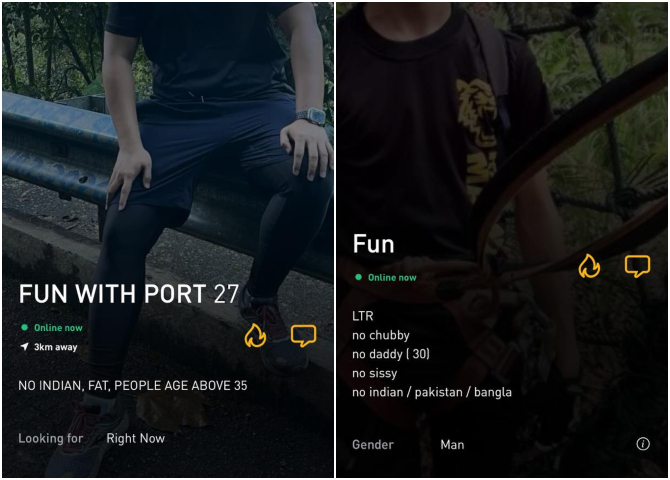“Mirror mirror on the wall,Who’s the fairest of them all?”
Well, it certainly isn’t me. Most brown people may agree. It is something that I, for one, am constantly reminded of. I’ve heard it all. Having your friends say they don’t want to go out in the sun for fear of getting “darker”. Hearing your teacher(s) tell your dark-skinned Indian friend that if they were to turn off the classroom rights, said friend would “disappear”. Having an aunt say that “you used to look so fair, what happened?” after seeing you for the first time in months.
I will admit that I used to be thankful I wasn’t darker. I was somewhat spared from my fellow schoolmates’ musings who would casually joke about the “black” skin tone of a mutual Indian friend. It was always a “joke”, never outright bullying—but it wasn’t funny either. In secondary school, I used to find myself reaching for Nivea Men face wash that had “extra whitening” stated boldly on the cover, thinking that would somehow “elevate” my caramel-coffee-coloured complexion.
i’m so fucking tired of people thinking it’s a joke when darker skinned people just want our skin tone to be represented, respected, and celebrated. it’s taken me years to learn to love me and the skin i’m in, but it’s shit like this that brings back all that self hatred.
— AJ ⇢ quarter-century (@IMERIAcosplay) June 20, 2019
I am not the only one. “I was once told I was too dark for the role of an Indian girl during a casting call. I was told by a family friend while I was helping hang decorations for his 21st birthday party and my top had pulled up a little because I was stretching, that “If you want to show skin, at least let it be fair”. I was doing an advertisement for a “Malaysia unity” commercial, and they needed a close up of one of the talent’s hands to pick up something. The Malay girl had a scar on her hand, the Chinese girl had half manicured nails and then there was me with perfectly manicured nails. They couldn’t use my hand because they needed someone with “fair skin”. I’ve done magazine shoots where they didn’t have makeup artists who were familiar with dark skin, so after a point whenever I had to shoot, I would carry my own makeup,” shares 33-year-old model and entrepreneur Harmini Asokumar.
View this post on Instagram
Fairness has been associated with beauty long before British colonialism. It was a sign of privilege. By not having to work under the sun, you retain fair skin, signifying a distinction between the upper and working classes. And somehow, this notion of beauty spiralled from class separation to represent unattractiveness, dirt and all things undesirable. This way of thinking has been imbued in Malaysians from the day we began to look in the mirror. But here’s the catch, the notion that fair equals beautiful isn’t always delivered so openly. It gets channelled to us in the form of humour. The topic of skin colour developed into something to be joked about at the expense of others. But it isn’t outward racism, right? Because “it’s a joke la, chill”.
How can we post a “#blackouttuesday” tile on Instagram and dance to Cardi B’s latest song but at the same beat, think being dark is “ugly”? It’s hypocrisy. During the Black Lives Matter movement in the US, we are quick to say “Black Lives Matter” and hashtag #blm, but then, think brownface is an acceptable joke. Brownface portrays someone as a different race, using skin tone as a form of costume. CNN explains that brown- and blackface have a dark history of perpetuating dehumanising stereotypes while enforcing white people’s notions of superiority. Much like how the US’s history of blackface depicts black individuals as lazy, ignorant, or hypersexual, brownface in Malaysia is used to represent something ugly or dirty. Having brown skin is not something we can put on and wipe off once a director says “cut”.

Colourism in Malaysia is nothing new. The music video by Choo Hao Ren (who also goes by Haoren) was only the tipping point, but it was a spotlight not only on the musician’s ignorance but also on his large fanbase who didn’t see an issue with what he did.
ICYMI:
Last week, musician Haoren released a music video entitled ‘White Doll’ whereby actress Qiu Wen was literally painted with brown make-up to give her face and body a darker appearance. In the now-deleted music video, Qiu Wen’s character is bullied by girls in school for having darker skin. One scene even depicts a canteen worker speaking to her in Malay before her classmates burst out in a fit of laughter, insinuating that her dark skin led to the worker confusing her race. Haoren then appears, leaving Qiu Wen’s character a drink sachet (among sunblock and an umbrella) to whiten her complexion. Once Qiu Wen’s character is rid of her darker appearance, her former bullies now marvel at her “beautiful”, fair appearance.
The South China Morning Post stated that Haoren initially stood his ground, but overwhelming backlash caused him to remove the video and release an apology video. What was surprising was the mostly positive initial reactions by fans. Before it was taken down, the video had already garnered 8,100 likes, contrasted to its 460 dislikes. This was something radio host and fitness coach Maggy Wang was quick to point out. She was one of the first to use her platform to speak against Haoren’s video. Wang called out the video’s problematic nature, relaying it back to her own experiences growing up and being called “dark” by an “auntie”. “It’s representing all the wrong things,” she said to her followers on an IG story.

But as we said earlier, Haoren is by no means the first to use skin colour as a method to sell products. Watsons Malaysia embroiled themselves in their own colourism controversy back in 2017. Watsons claimed that the advertisement was made in reference to the folklore of Dayang Senandung who was cursed with black skin since birth. The health and beauty chain explained the video was aimed to highlight the legend and its moral values of inner beauty. However, Malaysians on social media were quick to call out the advertisement’s racist and misogynistic undertones. “Historically and culturally, there’s always been a preference for fairer skin—it’s still considered a beauty standard, as is evident in our folklore, especially in Dayang Senandung,” says 25-year-old writer Farhan Yusoff.
Colourism isn’t only in advertisements or music videos. It is also within the members of parliament. During a Dewan Rakyat sitting last year, Baling MP Datuk Seri Abdul Azeez Abdul Rahim made a racist remark against DAP’s Batu Kawan MP Kasthuriraani Patto. New Straits Times reported that while Patto was speaking, Azeez interrupted saying, “gelap tak nampak” or “so dark cannot see”. He continued on saying “saya pun gelap. Pakai lah bedak, tak ada masalah” (“I am also dark. Just put on powder, not a problem). According to the Malay Mail, the next day Baling MP tried to backpedal after Speaker Datuk Azhar Azizan Harun ordered him to apologise. Abdul Azeez noted that the description of the Indian lawmaker as gelap (dark) and suggestion that she pakai bedak (use facial powder) was unparliamentary and offensive. “I meant the area is dark, it’s not very visible,” he tried to explain. Kasthuriraani thanked Azhar for his decision but pressed him for a harsher penalty against Abdul Azeez. However, Azhar quickly dismissed the notion and said “he needed to continue with the day’s proceedings,” wrote the Star.
So the question remains, what is funny about brownface? “I think it’s 2021 and Malaysians really need to step up their game when it comes to using colourism as a form of humour. I don’t see the comedy in it; therefore I do not understand it, the same way I don’t see comedy in racism. I think people tend to forget that these things go hand in hand. The lack of knowledge with comprehension and empathy is possibly one of our biggest downfalls,” says Harmini Asokumar.

So how do we move forward? It starts with loving yourself from the inside. Put yourself in your neighbour’s shoes. I love my Indian culture, but I used to want to be fairer. I wanted to be Sanjeeva first, Sri-Lankan Indian-heritage second. I didn’t want someone to see me and just see an Indian man. Even in my dating life, I wouldn’t be amiss to find a dating app profile that said: “No Indians” (that’s a topic for another day). Not that I would ever consider dating someone with that mentality, but it’s a mere preview of the mindset of Malaysians. We live in a multi-racial nation and have been doing so since before we were colonised by the British. Be wary of issues of brownface and educate yourself, especially when it comes to skin colour. If someone voices a matter on something pertaining to race, listen to them. Not everything should be labelled as “hypersensitivity”.
View this post on Instagram
Thirdly, if you are indeed a creative, be creative. Find other ways to sell your products, music videos or cosmetics. Or better yet, find ways to sell products to all Malaysians, fair and dark. “As a photographer or at least as someone who churns out content on social media, the onus is on us to break down the stereotype. Being dark-skinned is beautiful, and people should be proud of their melanin-rich skin. As a photographer, I tell my clients that the way our skin reflects light is beautiful,” says wedding photographer Vinoth Raj Pillai. At the end of the day, it could be blackface, brownface, or yellowface. All of the above are offensive. None are funny.
| SHARE THE STORY | |
| Explore More |




